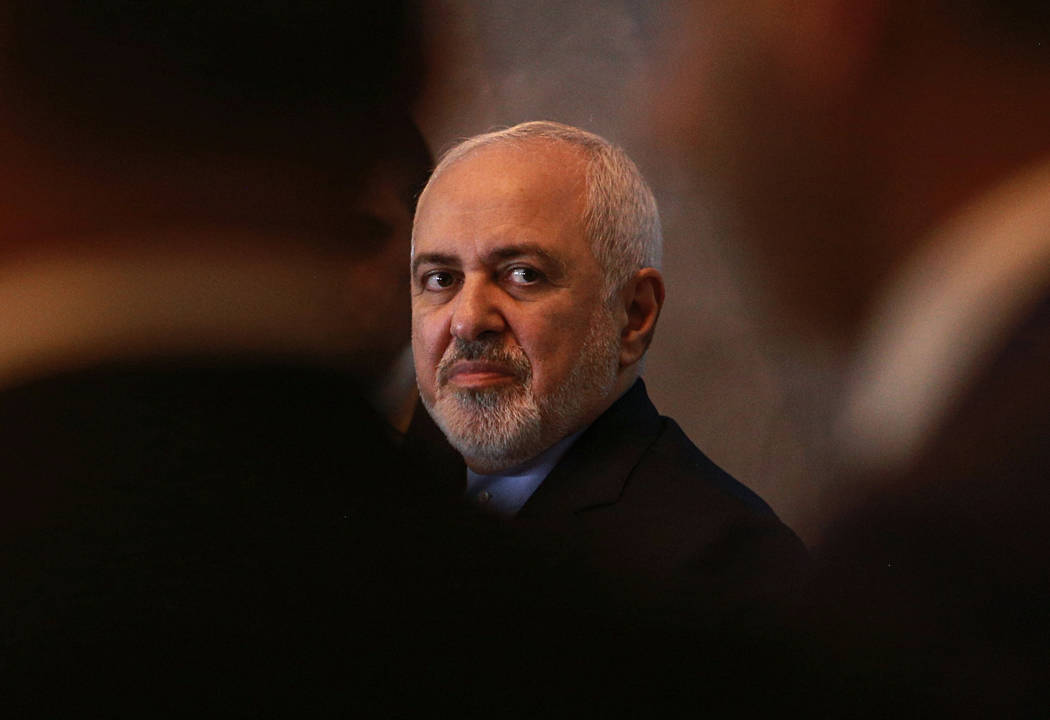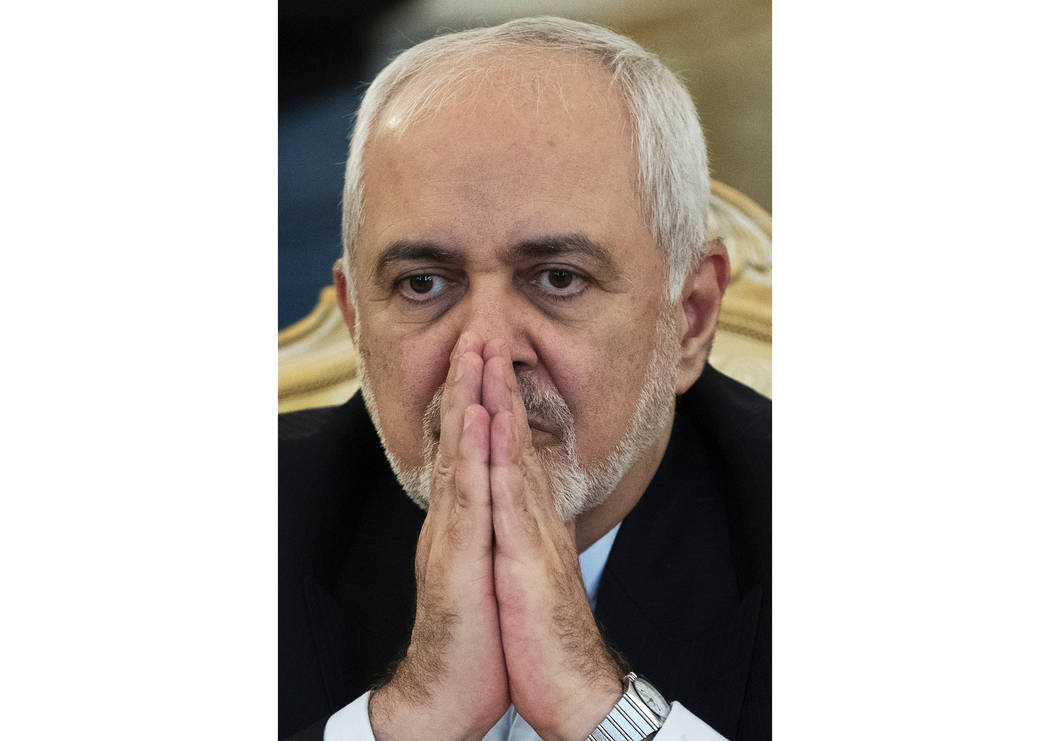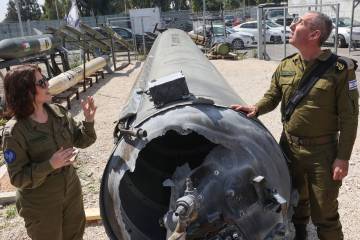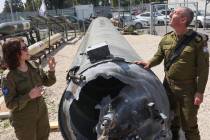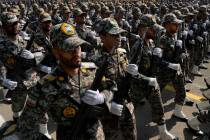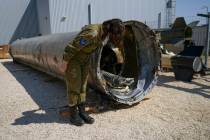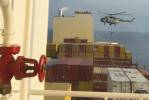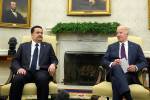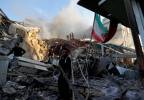US fears Iran seized UAE-based oil tanker
DUBAI, United Arab Emirates — Tracking data shows an oil tanker based in the United Arab Emirates traveling through the Strait of Hormuz drifted off into Iranian waters and stopped transmitting its location more than two days ago, raising concerns Tuesday about its status amid heightened tensions between Iran and the U.S.
It wasn’t clear what happened to the Panamanian-flagged oil tanker Riah late Saturday night, though a U.S. defense official told The Associated Press that America “has suspicions” Iran seized the vessel. There was no immediate comment from Tehran.
However, its last position showed it pointing toward Iran. Oil tankers have previously been targeted as the Persian Gulf region took center stage in a crisis over Iran’s unraveling nuclear deal with world powers.
The concern about the Riah comes as Iran continues its own high-pressure campaign over its nuclear program after President Donald Trump unilaterally withdrew America from the accord over a year ago.
Recently, Iran has inched its uranium production and enrichment over the limits of its 2015 nuclear deal, trying to put more pressure on Europe to offer it better terms and allow it to sell its crude oil abroad.
However, those tensions also have seen the U.S. send thousands of additional troops, nuclear-capable B-52 bombers and advanced fighter jets into the Mideast. Mysterious attacks on oil tankers and Iran shooting down a U.S. military surveillance drone has added to the fears of an armed conflict breaking out.
The Riah, a 58-meter oil tanker, typically made trips from Dubai and Sharjah on the UAE’s west coast before going through the strait and heading to Fujairah on the UAE’s east coast. However, something happened to the vessel after 11 p.m. on Saturday, according to tracking data.
‘Red flag’
Capt. Ranjith Raja of the data firm Refinitiv told The Associated Press on Tuesday that the tanker hadn’t switched off its tracking in three months of trips around the UAE.
“That is a red flag,” Raja said.
Iranian officials have not said anything publicly about the ship, nor have officials in the UAE. The U.S. Navy’s 5th Fleet, which oversees Mideast waters, declined to immediately comment.
A U.S. defense official later told the AP that Riah is in Iranian territorial waters near Qeshm Island, which has a Revolutionary Guard base on it. He said the U.S. “has suspicions” Iran seized the vessel.
“Could it have broken down or been towed for assistance? That’s a possibility,” the official said. “But the longer there is a period of no contact … it’s going to be a concern.”
The official spoke on condition of anonymity as the matter did not directly involve U.S. interests.
Owner says it sold the ship
The ship’s registered owner, Dubai-based Prime Tankers LLC, told the AP it had sold the ship to another company called Mouj Al-Bahar. A man who answered a telephone number registered to the firm told the AP it didn’t own any ships.
Separately, Iran’s Supreme Leader Ayatollah Ali Khamenei said Tuesday his country will retaliate over the seizure of an Iranian supertanker carrying 2.1 million barrels of light crude oil. The vessel was seized with the help of British Royal Marines earlier this month off Gibraltar.
Khamenei called the seizure of the ship “piracy” in a televised speech Tuesday.
“God willing, the Islamic Republic and its committed forces will not leave this evil without a response,” he said.
British Foreign Secretary Jeremy Hunt said Saturday that Britain will facilitate the release the ship if Iran can provide guarantees the vessel will not breach European sanctions on oil shipments to Syria.
Missile program up for negotiatios?
Meanwhile, Iran’s Foreign Minister Mohammad Javad Zarif seemed to suggest in a television interview that the Islamic Republic’s ballistic missile program could be up for negotiations with the U.S., a possible opening for talks as tensions remain high between Tehran and Washington. Zarif suggested an initially high price for such negotiations — the halt of American arms sales to both Saudi Arabia and the United Arab Emirates, two key U.S. allies in the Persian Gulf.
Iran’s ballistic missile program remains under control of the Iranian paramilitary Revolutionary Guard, which answers only to Khamenei.
Zarif brought up the ballistic missile suggestion during an interview with NBC News that aired Monday night as he’s in New York for meetings at the United Nations. He mentioned the UAE spending $22 billion and Saudi Arabia spending $67 billion on weapons last year, many of them American-made, while Iran spent only $16 billion in comparison.
“These are American weaponry that is going into our region, making our region ready to explode,” Zarif said. “So if they want to talk about our missiles, they need first to stop selling all these weapons, including missiles, to our region.”
Iran’s mission to the United Nations later called Zarif’s suggestion “hypothetical.”
“Iran’s missiles … are absolutely and under no condition negotiable with anyone or any country, period,” the mission said.
Trump during his time in the White House has pointed to arms sales to the Mideast as important to the American economy, so it remains unclear how he’d react to cutting into those purchases.
Since its 1979 Islamic Revolution and the takeover of the U.S. Embassy in Tehran, Iran has faced a variety of economic sanctions. That has cut into Iran’s ability to buy advanced weaponry abroad. While Gulf Arab nations have purchased advanced fighter jets, Iran still relies on pre-1979 U.S. fighter jets, as well as other aging Soviet MiGs and other planes.
Facing that shortfall, Iran instead invested heavily into its ballistic missile program. That’s both due to sanctions and the memory of the missile attacks launched by Saddam Hussein during Iran’s bloody 1980s war with Iraq.
Khamenei reportedly has restricted the range of ballistic missiles manufactured in Iran to 1,240 miles. While that keeps Europe out of range, it means the Iranian missiles can hit much of the Middle East, including Israel and American military bases in the region.
In pulling out of the deal, Trump in part blamed the accord not touching on Iran’s ballistic missile program. The U.S. fears Iran could use its missile technology and space program to build nuclear-capable intercontinental ballistic missiles, something Tehran denies it wants to do.
———
Associated Press writer Nasser Karimi in Tehran, Iran, contributed to this report.



